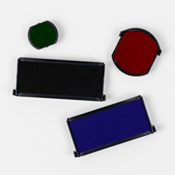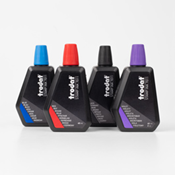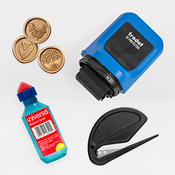The art and etiquette of letter writing
Print
With the evolution of the internet and smartphones, our inboxes have taken the place of our mailboxes. The intimacy of communication has slowly withered away. We’ve forgotten the excitement of receiving personal letters in the mail and the enjoyment of making something personal for the people we hold dear to us.
Although it seems texting is here to stay, we can still share our sentiments in more lasting and meaningful ways. The etiquette of letter writing is something we should all value and practice.
Here are some tips on writing a beautiful and memorable letter.
 Image from the Orange County Register
Image from the Orange County Register
Letters of the Past
In the not-so-distant past, handwritten letters were the only means of communication. Cellphones, email, and instant messenger didn’t exist. People were inspired to make their messages meaningful. Handwritten communication was more eloquent and graceful.
We’ve simply forgotten that without written messages our stories and sentiments will be lost forever. Your grandparents most likely have a rugged keepsake box full of letters, pictures, and articles. What will our generation leave behind?
Tips to Take From Old Letters
- Write with Purpose
- Invest in Stationery and Writing Instruments
- Quality Over Quantity
- Keep it Neat
- Personal Closing and Signature
Our handheld devices lead us to talk about things that are of little importance. When writing a letter, make your words count. In the past, people communicated their feelings and beliefs through letters. What would you write if you had something heartfelt to say? Start there.
Get the right tools! A great pen and a proper sheet of paper can make all the difference when you write. You can also save time by using a custom address stamp. A stamp will personalize each letter you send and ensure that people know how to reach you.
Sometimes the fewest words have the most impact. Great writers make memorable and meaningful statements by carefully selecting their words. With practice, you can too!
If you struggle with drawing straight down the page, make a guideline with a pencil. Once you finish writing, you can easily erase the mark. Excellent penmanship is a learned skill, so be patient with yourself. When you write, try to keep it neat. Write a rough draft where you can make mistakes, then transfer the best pieces to a new sheet of paper.
The way you close your letter will depend on the recipient. If the message is for your wife, you can use “with all my love.” For business, you can try “best regards.” After your closing statement, write your signature. This personal touch signifies the completion of your thoughts.
Occasions to Write Letters For
- Anniversaries
- Condolence
- Birthdays
- Thank You
Gifts are always appreciated but expressing your feelings for your significant other often leaves a more memorable impact. A love letter is swoon-worthy and is admirable for years to come.
When we face hard times, we turn to friends and family. With social media, it is common for people to express their condolences through a message or comment. Sending a thoughtful letter, however, will let them know you’re truly there for them.
It is standard to give a card to the birthday girl or boy. Whether you want to be silly or sweet, a birthday wish is always appreciated.
There are many occasions in which saying “Thank you” is the polite thing to do. Thank you cards are important in social and business settings. For parties, you should always send cards to thank friends for gifts. In business, a professional yet genuine “thank you” goes a long way.
A heartfelt, handwritten message has true impact. It is now a novelty to receive a letter from a good friend or loved one. Your mailbox shouldn’t be the dreaded place where you receive bills.
Start exploring the art of letter writing! Get yourself a pen pal and scribble away your thoughts and feelings. You never know, your letter may become a cherished addition to someone else’s rugged keepsake box.
Keep up with us @SimplyStamps and share pictures of your address stamp!








